Session #1 – 9:30am ET
Emmaline Armstrong – Get Experiential! Developing a Tailored Resume Through a Workbook of Practical Guidance, Self-Exploration and Reflection
Are you finding your resume guidance seems lackluster or that students aren’t engaging with the advice? This session will help you revamp your office’s resume resources and get experiential! In this session, we will share the Center for Student Professional Development’s Resume Generator, an experiential workbook that empowers students to create an individualized marketing document through reflection and self-exploration. We will highlight the importance of an experiential ideology when developing and tailoring a resume, allowing our students to understand their story and how they fit in their career trajectory. We will reflect on our successes, as well as challenges we overcame during the Generator’s evolution into a more inclusive and experiential learning structure for our students to thrive.

Dr. Pam Schilling, Dr. Jeremy Morse – The U.S. Manager is Not Your Guru
Do you know the influential role of the Guru? What are culture norms that influence career behavior and decision making for South Asians? In this engaging webinar, we share our experience coaching and researching of South Asian students and these influences. Students seeking work in the United States and working for U.S. origin managers face challenges impacting interviews and on-the-job success. This is an opportunity to hear first-hand from experts who understand both cultures and have deep experience working with cross-cultural teams and hiring, evaluating, and coaching thousands of South Asians.
Our agenda includes 3 key topics: a) A comparison of U.S. and South Asian culture and education, b) the role cultural intelligence and how to apply this as a career coach, and c) approaches for career coaches to support students.
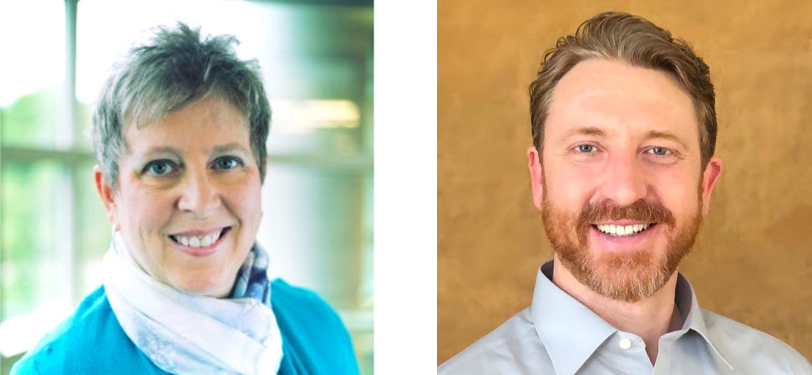
Matthew French, Jessie Simonik & Jay Skipworth – Podcasting a Wider Net for your Career Center
Learn how UNC Charlotte’s Career Center uses their weekly Career Bits podcast/videocast to promote career development initiatives of their office, highlight new initiatives and resources, as well as feature prominent students, alumni, faculty, staff, and employer partners.
Check out the finished product –
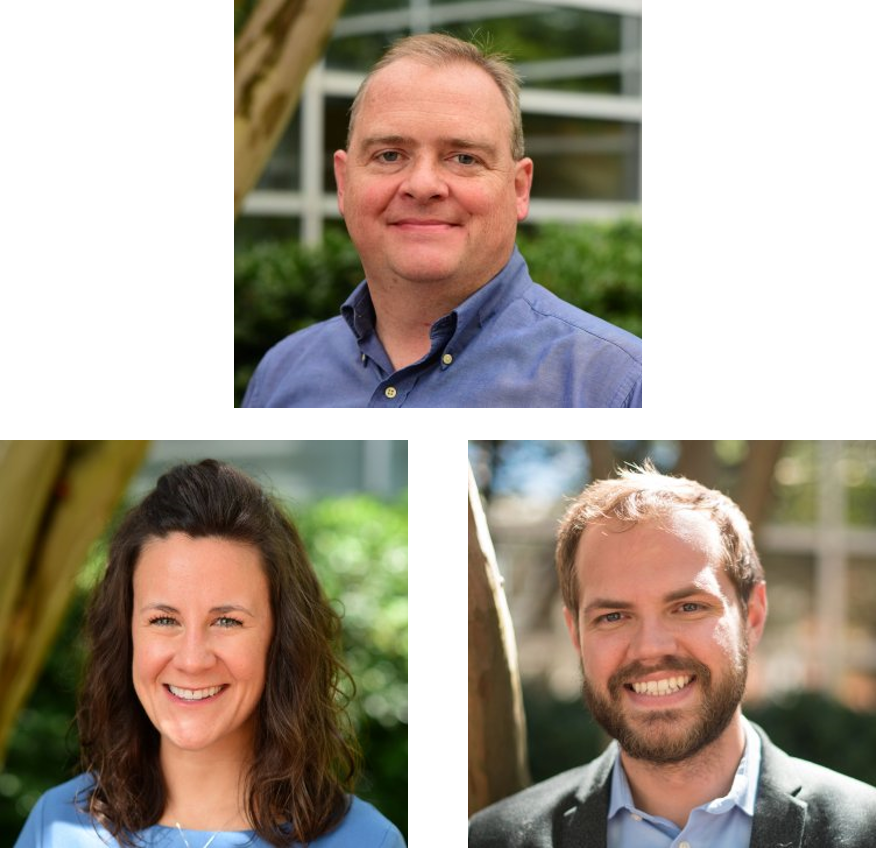
Session #2 – 10:30am ET
Stacy Moore – Eliminating Data Overload: Collecting and Using Data Effectively to Share the Career Services’ Story
Do you feel overwhelmed by all of the data you collect and stuck not knowing how to best use it? Though we, as career services professionals, frequently serve as the campus provider of university career outcomes rates and employer job posting statistics, knowing which other data to communicate externally can feel much less certain. Just like us, students, alumni and industry-partners are inundated with information, making what we share as critical as what we collect. This session, designed for small schools with limited/no in-house assessment staff, will lead you through a series of reflection activities designed to identify the most important data points for your unique campus culture and constituents’ needs.

Lynda Busack & Megan Anderson – Stronger Together: Building an Internship Consortium among Public, Private, and Technical Colleges
Learn how internship coordinators from diverse higher education institutions are working together to help build a talent pipeline for area employers while supporting students at their individual schools. For more than 20 years, MACIC (Milwaukee Area College Internship Consortium) has been providing networking opportunities and sharing “best practices” and resources to connect career services professionals to one-another as well as employers in the area. MACIC fosters a collaborative environment through Hot Topics Discussions, Professional Development events, an Employer Awards Recognition Program, a Student Internship Showcase and Panel Presentation and most recently, in the era of COVID-19, Town Hall Virtual Gatherings. By breaking down silos between (and sometimes within) institutions, MACIC builds on the strengths and expertise each member brings to the group.

Patrick Madsen – Re-Imagining Career Competency Integration
As institutions look towards the future of work, re-designing curriculum with an eye on competency development, and communicating this to its students, entities that connect heavily with industry should be brought into the fold. Studies conducted by McKinsey, Deloitte, EAB, Hart Research, Gallup, and others report a common thread when it comes to the communication between higher education and industry – it is lacking. Spearheaded by the career center, and using lateral thinking to innovate a new path forward, UNC Charlotte has embarked on a strategy to assist in the translation between higher education and industry through the creation of techniques, technology, and consulting with faculty.
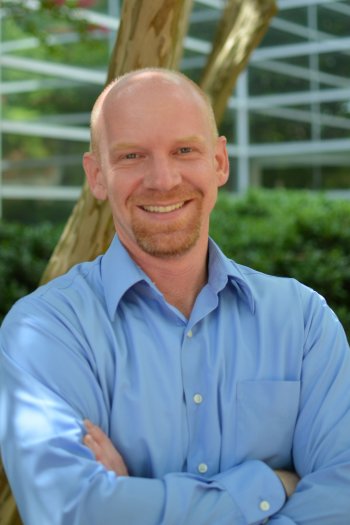
Session #3 – 11:30am ET
Steven Rothberg – Beyond the virtual career event: 12 ways employers are improving how they recruit diverse students and recent grads
On May 25, 2020, George Floyd, a 46-year-old black man, was killed by the Minneapolis Police Department only miles from my home in Minneapolis, Minnesota. His crime? Allegedly using a counterfeit bill, although if he was unaware that the bill was counterfeit then he didn’t even commit a crime.
Since Floyd’s killing, most of the large corporations in the country have placed greater emphasis on their recruitment and retention of diverse college students and recent graduates. They’re trying to make their workplaces more equitable and inclusive, and that’s all great. Some question whether these actions are merely “feel good” and therefore foolish, but the data shows very, very good reasons for employers to improve their diversity, equity, and inclusion (DEI) practices.
Studies show:
- Companies with diverse management teams have 19% higher revenues.
- Diverse companies are 1.7 times more likely to be innovation leaders in their market segments.
- 67% of job seekers say diversity is an important factor when considering a company.
- 85% of CEOs say that having a diverse workforce improved their bottom lines.
Given that it is good for business to recruit more diverse college students, together we will look at 12 ways to make that happen.

Cindy B. Damschroder – Adapting a Mandatory Internship Program during a Pandemic
Beyond death and taxes one thing is certain – the traditional co-op model at the University of Cincinnati. We invented co-op in 1908 and like a train delivering boxcars across the country, this system is tested, reliable, and predictable. However, with the onset of COVID-19 and the closing of businesses across the country, UC found its robust co-op pipeline decimated. With the summer co-op search well underway, experiential learning had to redefine itself quickly, while faculty were working remotely themselves and concurrently dealing with students being laid off from spring learning experiences. Yet, maintaining a student-centric focus while in crisis, offering our subject matter expertise to our employer partners while many were struggling with working remotely, and offering flexible pathways for our students to continue to “learn by doing” during the summer semester was key. Find out how the Division of ELCE was able to deliver over 2,000 summer “experiential learning” placements during a pandemic and the lessons learned that helped to shaped the delivery of our fall experiences.

Ann McAdam Griffin and JP Abercrumbie – SOAR: Empowering and Equipping Student-Athletes with the Training They Need to Thrive
Rice Athletics’ Vision for Victory, a 5-year strategic plan, renewed the shared commitment of the Center for Career Development and the Student-Athlete Development unit to support the development of personal characteristics through the athletic experience and the investment in career and life skills programming that will fuel our student-athletes’ success at Rice and beyond. By co-chairing a committee comprised of current and graduate letter winners, head and assistant coaches, and additional athletics staff, the co-presenters facilitated the development a Flight Plan for Student-Athletes. The Flight Plan provides a year-by-year framework for student-athletes to prioritize and manage personal and professional development by creating awareness of campus resources, ensuring accessibility of said resources around student-athletes seasons and schedules, and enabling student athletes to activate their unique development needs based on personal and professional goals. This presentation will convey how a partnership between Student-Athlete Development and the Center for Career Development led to a scalable and sustainable professional and personal development Flight Plan for student-athletes and provide participants with a template for launching a similar initiative on their own campuses.
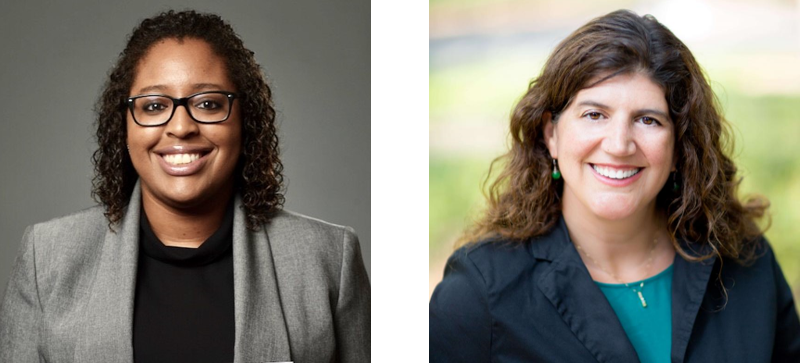
Keynote Presentation – 12:30pm ET
Jeff Butler – Preparing for the Workforce 2020
Jeff Butler is the author of two provocative books – The Authentic Workplace and The Key to the New You and CEO of JButler International. Having written over 100 articles on workplace dynamics, his insights have been featured in dozens of media outlets such as Forbes and HR News. In addition, he has appeared on TEDx in both 2016 and 2017 with both talks focusing on psychology. Before Jeff founded his workplace consulting company, he spent almost a decade in Silicon Valley working as a Software Engineer which is where his initial interest in organization psychology began to develop. Since then, he has personally addressed over 100 organizations internationally on workplace dynamics issues such as Google, Amazon, LinkedIn, and Wells Fargo. He lives in Boston, MA with his family.
Keynote Presentation: Preparing for the Workforce 2020
After 500 interviews, working in 5 companies and interviewing dozens of professionals in his podcast- GigaNation, Jeff has combined both his personal and current trending industry advice into this program. This programs covers the essentials what is required to get hired in today’s competitive landscape. Everything from tweaking LinkedIn, hiring communities at Google, to managing interview rejection, this talk covers both tactical and strategic approaches to getting hired in tech. This program is aimed at entry level to mid-level manager positions.
Learning Points:
- Explore the importance of “soft” skills for handling interviews such as behavioural questions and emotional intelligence
- Discover Technologies to multiply your effectiveness of getting hired.
- Learn what really happens behind the scenes at the top companies at the world such as Google’s hiring committee decisions.

Session #4 – 1:30pm ET
Rishav Khanal – Using Your Interns To Drive Your Diversity Recruitment Efforts
Campus recruiting teams responsible for a high volume of hires every year are often disconnected from the company’s diversity initiatives. Learn how to plan and train your interns to turn them into credible campus ambassadors beyond just having them wear t-shirts and pass out water bottles, but instead, create a program that accelerates your diversity recruitment efforts in a creative and cost-effective way.

Rachel Criso, PhD. & Jillian Low – A Future Debate: Comparing the Outcomes of In-person and Online International Internships
As remote internships begin to take a more prominent and permanent seat at the table of professional development, a significant question has arisen: Are they as valuable as an in-person experience? Determining this value can come from multiple opinions to include how a recruiter assesses virtual experiences on a resume and how this compares to in-person traditional experiences, as well as the benefits a student gains from either. Looking at the past the presentation seeks to unpack the skills assessment of students of in-person in 2019 and remote internship experiences 2020 while building a roadmap for future support and delivery of both program types.

Makesha Dockery & Joe Catrino – No More Business As Usual : Why Career Services Professionals must P.I.V.O.T.
Career services professionals give advice, offer resources, provide critiques and review, study and research a variety of career topics and industries to help support students on college campuses around the world. We encourage students to adjust to market trends, adapt their soft skills and technical skills needed to be successful in their career. But what happens when the adjustments must happen within “us”. This session is designed to generate a discussion among career services professionals in a “closed door” behind the scenes way to address our anxieties, concerns and uncertainty about the Future of Work for career services professionals. Connect with each other on how to PIVOT our policies, procedures and programming for the Future of Work, TODAY!

Session #5 – 2:30pm ET
Roseanne Bensley – The Trend of Merging Career Services with Academic Advising
Sound academic advising and thoughtful career and life planning are inextricably fused to form a complete “picture”. And it takes time for the entire “picture” to reveal itself and may take on different meanings and interpretations throughout the process. Academic advisement and career development are not mutually exclusive, but are interdependently necessary to help students chart a course for academics, career, and life. Most (if not all) students enter higher education with the purpose of obtaining a job or moving along a desired career path. The merger of career services and academic advising is a new trend used to achieve university-wide goals.

Zen Parry – Culturally Responsive Mentoring – what are the differences and why it matters
In the increasingly culturally and diverse world of experiential education, and especially when internships are discussed, the role of mentoring is frequently identified as key to creating success for all stakeholders. Yet, many questions can be asked:
- Do you know what effective mentoring is for an indigenous student in a Caucasian world?
- Similarly, does a Caucasian student know what mentoring practices are in a Chinese company or a business in Saudi Arabia?
- If you have not heard of this term, how do you begin the process to acknowledge the impact of issues that have created this blind spot?
- As experiential education is discussed through the lens of internships, what elements are essential to create successful mentoring programs?
- What is your organization capable of demonstrating as continual learning about cultural differences?
- How do you identify qualified personnel as culturally responsive mentors?
- Is your version of mentoring adding to the experience or harming it in the eyes of the intern?
We can start this dialogue to identify one simple small step towards that larger discussion so that your workplace can be better prepared to receive an intern from a different cultural heritage.

Dr. Candice Racite & Dr. Patricia Claghorn – Engaging Your College with Your Community
Join us in learning about innovative experiences developed by a college delivered to the community, created as an opportunity to connect and establish a partnership and long lasting relationship. Three successful initiatives will be shared detailing the components of those programs, giving the audience an overview in a how-to style presentation.
Participants will hear about the structure and design of an award winning internship program, a widely anticipated career readiness fashion show, and preview the data of a successful week long skills event preparing students for the world after graduation.

Session #6 – 3:30pm ET
Juan E. Armijo – An Exploratory Based Approach to a Job Shadowing Program
Job Shadowing Programs are typically a way to expose students to a specific organization for a few days, and connect with professionals in their field of interest. First-generation students are often limited in their cultural capital and often times are only aware of common majors and lack knowing what career paths are available for them. Taking an exploratory-based approach to a job shadowing program assists with first-generation student success and engagement, and exposes students to a new career pathway.
In collaboration with campus partners and local employers, this exploratory-based job shadowing program provides students self-authorship to decision making during the program application process, training and support for employers to design the student experience during this week, and a student-centered orientation and program materials to prepare students prior to going to their site placement.
This Job Shadowing Program takes an exploratory-based approach to assist first-generation college students with their career exploration by gaining exposure to career paths and industry fields to make informed career decisions, gain professional development skills through the job shadowing process and strengthen their career confidence and industry awareness, as well as networking with employers to begin building relationships and connections for future internship opportunities and entry-level careers.
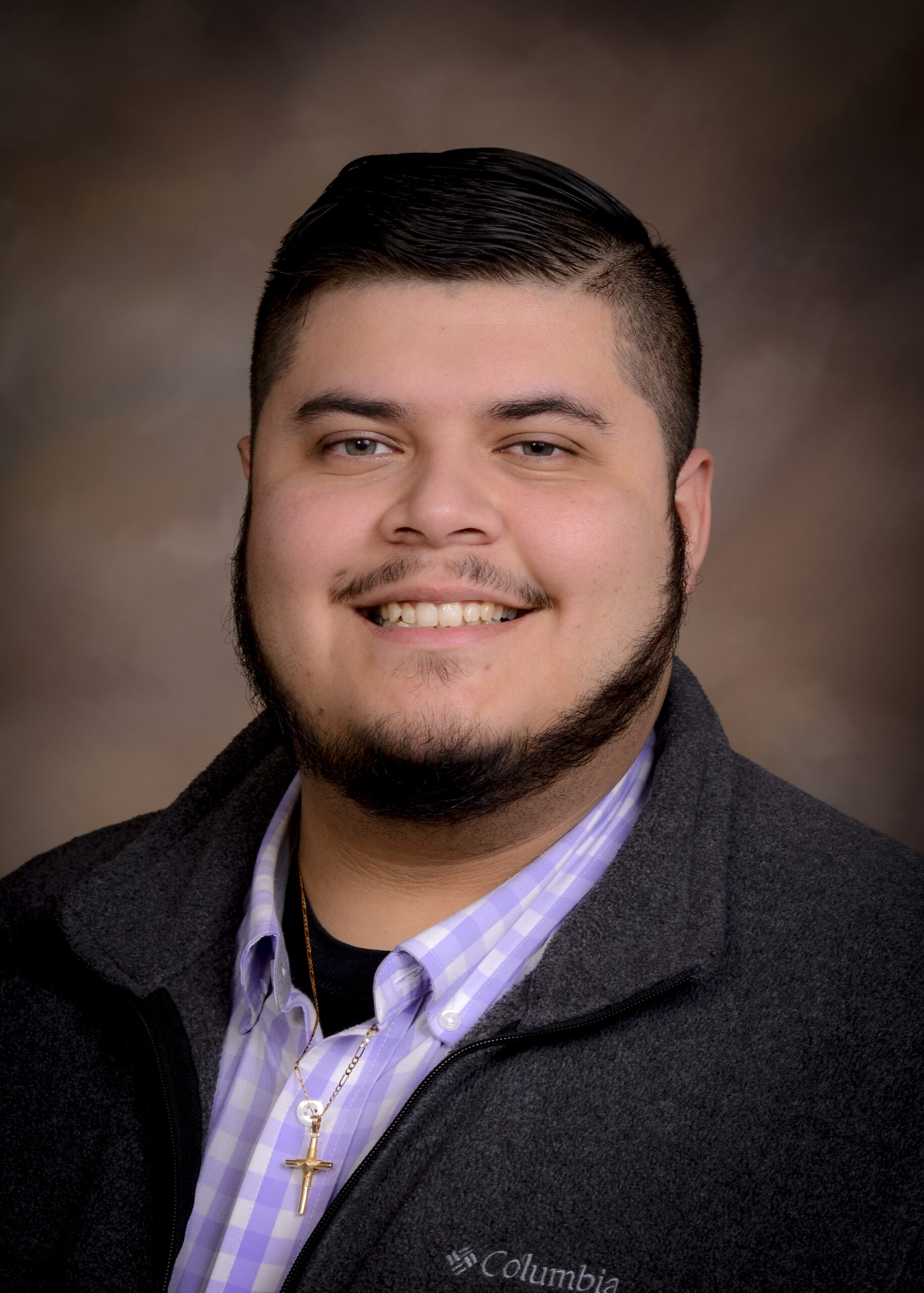
Dr. Kathy Tuberville – Finding The Middle Ground–Expanding Opportunities for Students
In today’s pandemic workplace, internship opportunities may be limited for students. Employers are hesitant to begin internship programs in some industries. As career professionals, we can assist by helping employer learn how to transition part-time work opportunities into meaningful internship experiences. With structure and creativity, these part-time opportunities can meet the needs of employers and students–it’s up to help to find the middle ground for opportunities!

Dr. Chris Laney & Doug Heckman – Navigating Career Planning in a Skills-Driven Economy
How are students communicating their skills when preparing for an internship or job? Skills is the currency of today’s economy and as more employers are considering skills over degrees, we’ll discuss how career planners can connect curriculum to skills, and how to communicate that to employers.
In this session, we’ll cover trends related to employers looking at skills as the currency for employment. As career planning leaders develop programs to connect students with employers, what role do skills play in the planning? This session will look at curriculum and how specific classes should develop specific skills that employers are looking for. Using Emsi’s rich data and skills library, we’ll dive into the importance of career planning in a skills-driven economy.
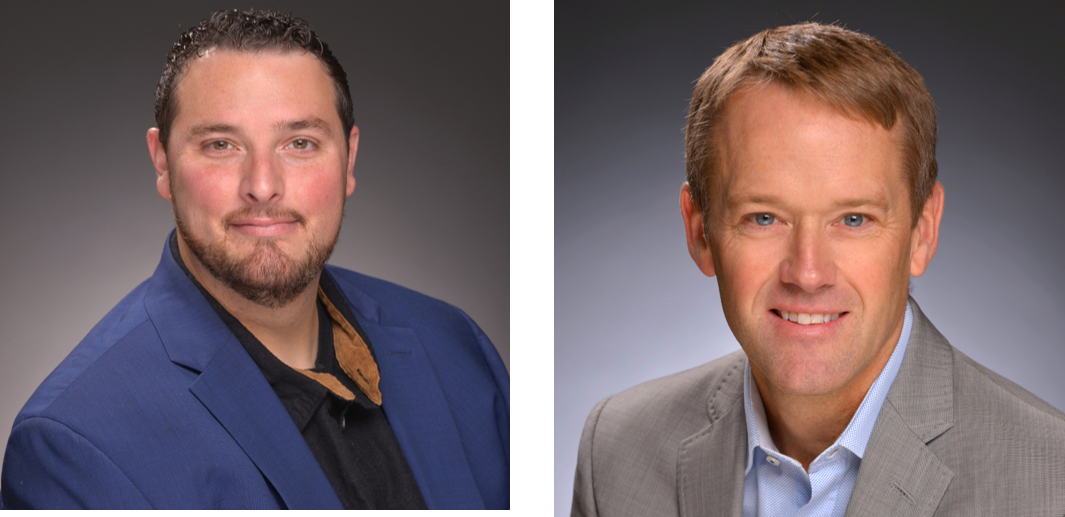
Session #7 – 4:30pm ET
Josh Iannuzzi & Victoria Marino – Cross Collaboration between College Career Services
Please join us for this interactive conversation focused on sharing how and why the Career Services offices at New Jersey City University (a four-year school) and Hudson County Community College College (a two-year school) built a strong partnership through sharing information, opportunities, resources and more.
Questions we will be addressing:
- Where did this opportunity for the two schools to partner start out?
- What was the initial feedback from colleagues and administrators on creating such a partnerships?
- What does a partnership between two different Career Services departments look like?
- What are some of the benefits to partnering with one another?
- What are the potential challenges or things to consider when partnering with another Career Services department?
- What are some of the positive and/or negative results of partnering with one another?
- How has the partnership between offices changed through time?
- What advice would you share with others seeking to partner with counterparts at other college/university Career Services’ departments?
- How can you further develop the partnership moving forward?

Bob Bullard – Finding your Career Soul: Using Pixar’s Soul Movie as a Master Class in Career Discovery
This presentation will examine the career path of the main character of Pixar’s Soul Movie, Joe Gardner, to best understand the combination of various career and performance theories that make up the idea of finding your Career Soul, inspired by the movie. Participants will engage in conversation and discovery to understand the intersection of career and performance theory and how career practitioners utilize these ideas in their practice. From career theorists Donald Super to John Krumbloltz and performance psychologists Anders Ericcson and Mihaly Csikszentmihalyi, a guided discussion will identify critical factors and theories that connect career counseling and performance psychology to support their students and clients in the discovery of their Career Soul.




